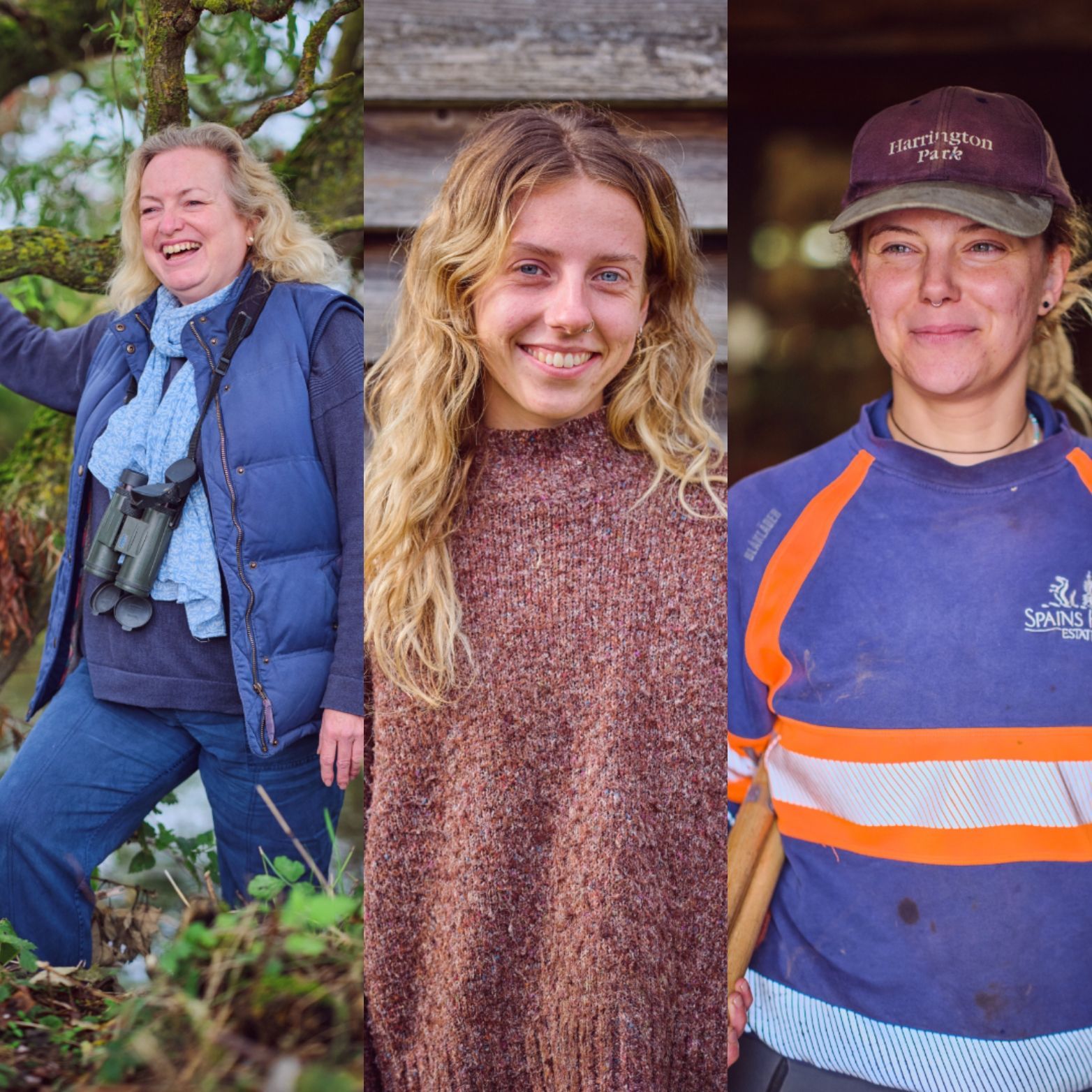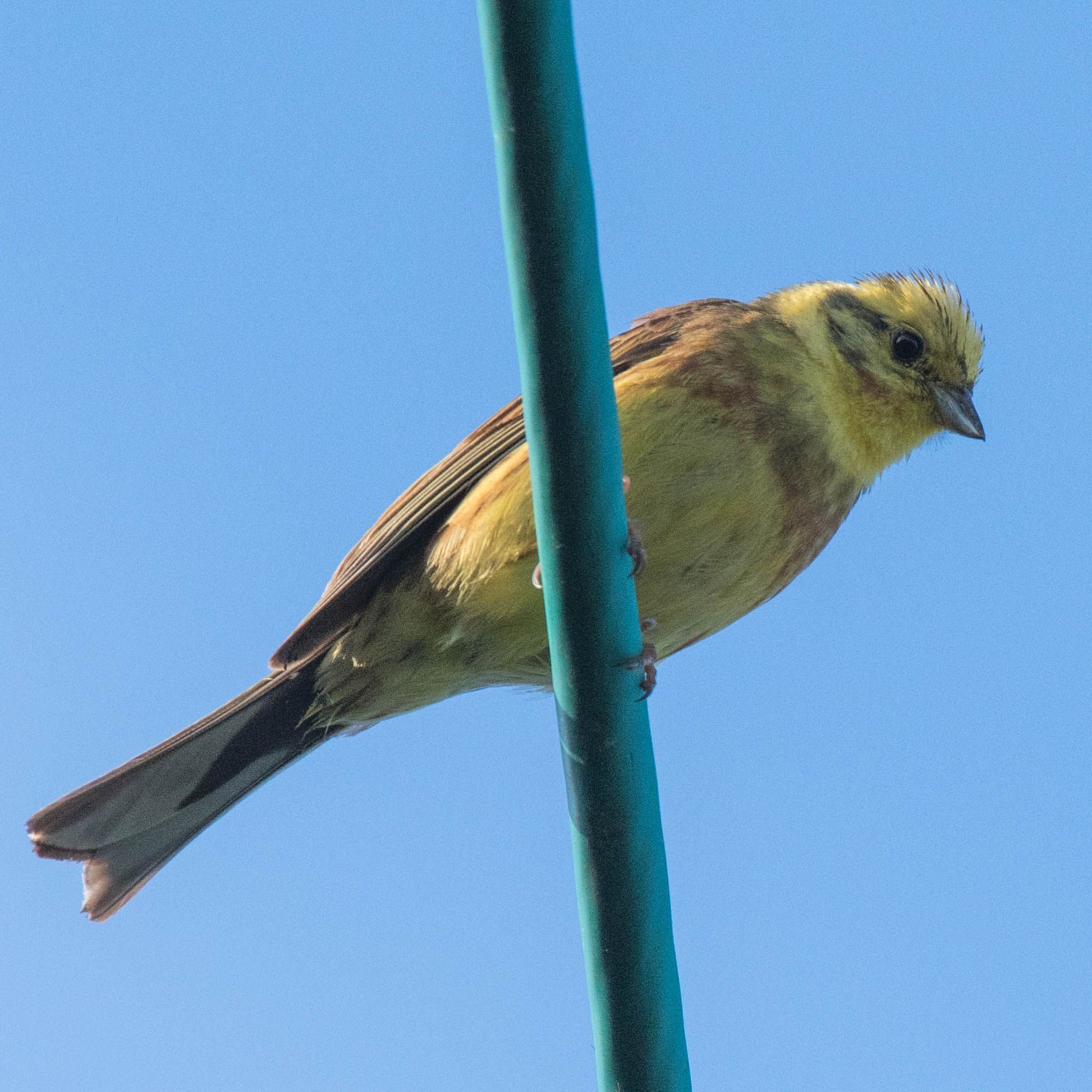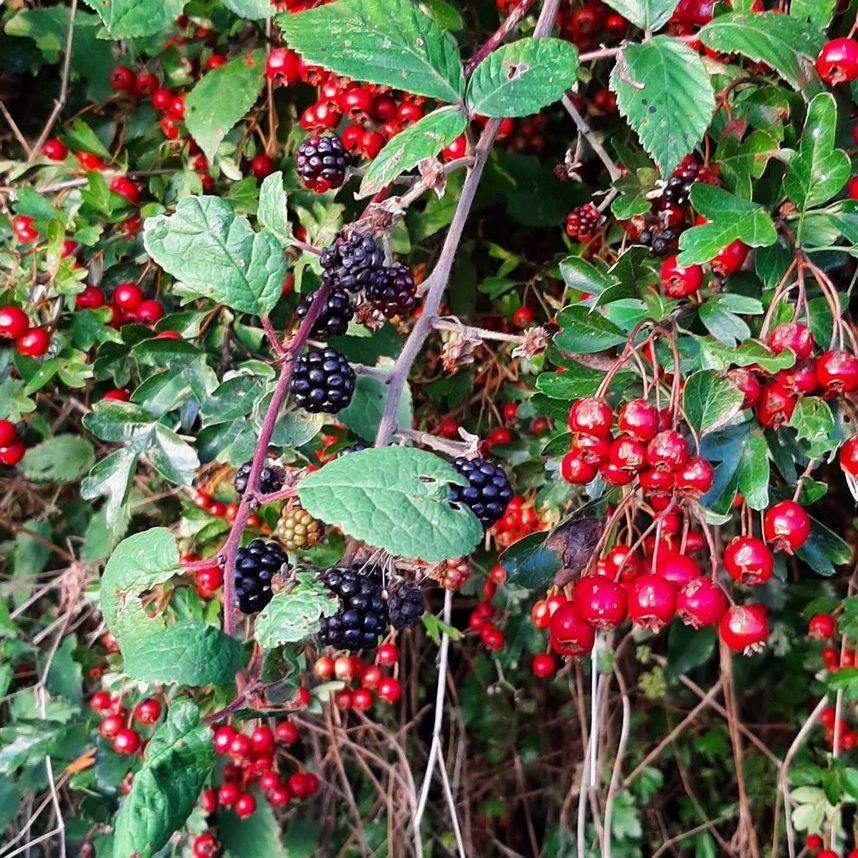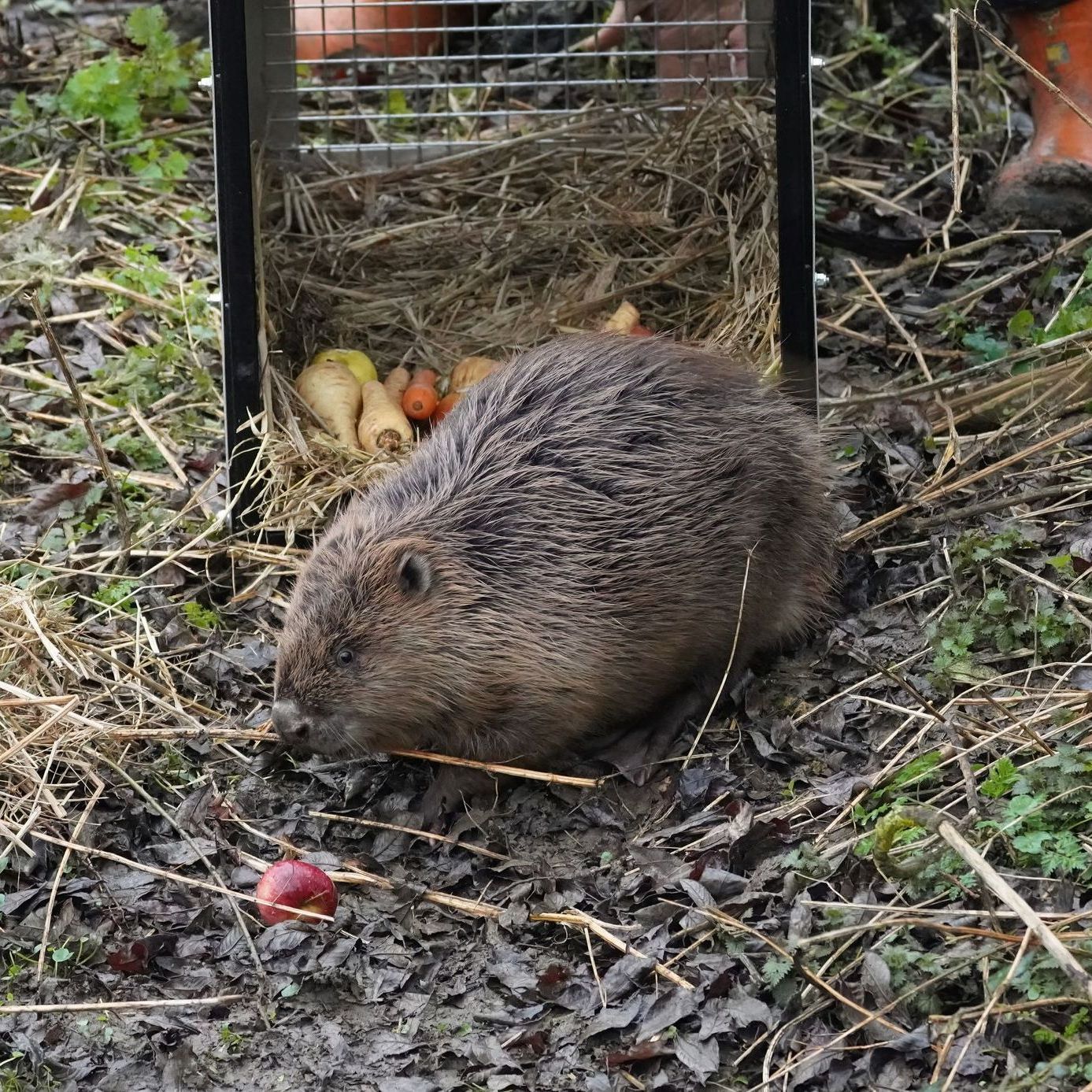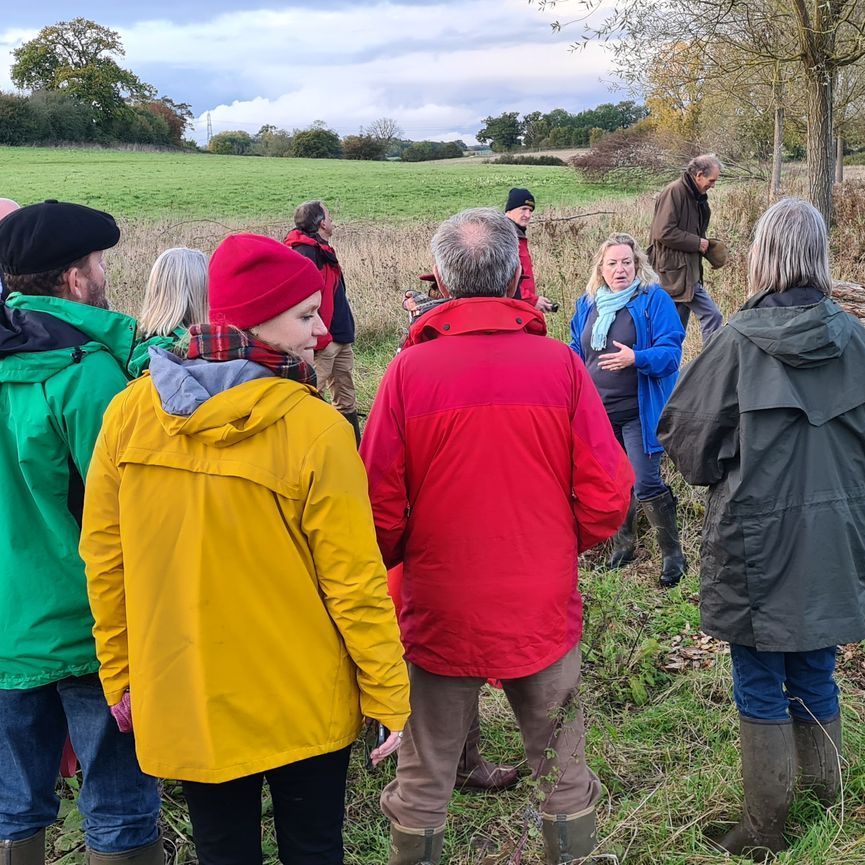New beavers released in Essex as ground-breaking Natural Flood Management programme expands
Today, another four Eurasian beavers have been released into two brand new 50-acre enclosures on the Spains Hall Estate in Finchingfield, Essex as part of a ground-breaking Natural Flood Management Scheme.
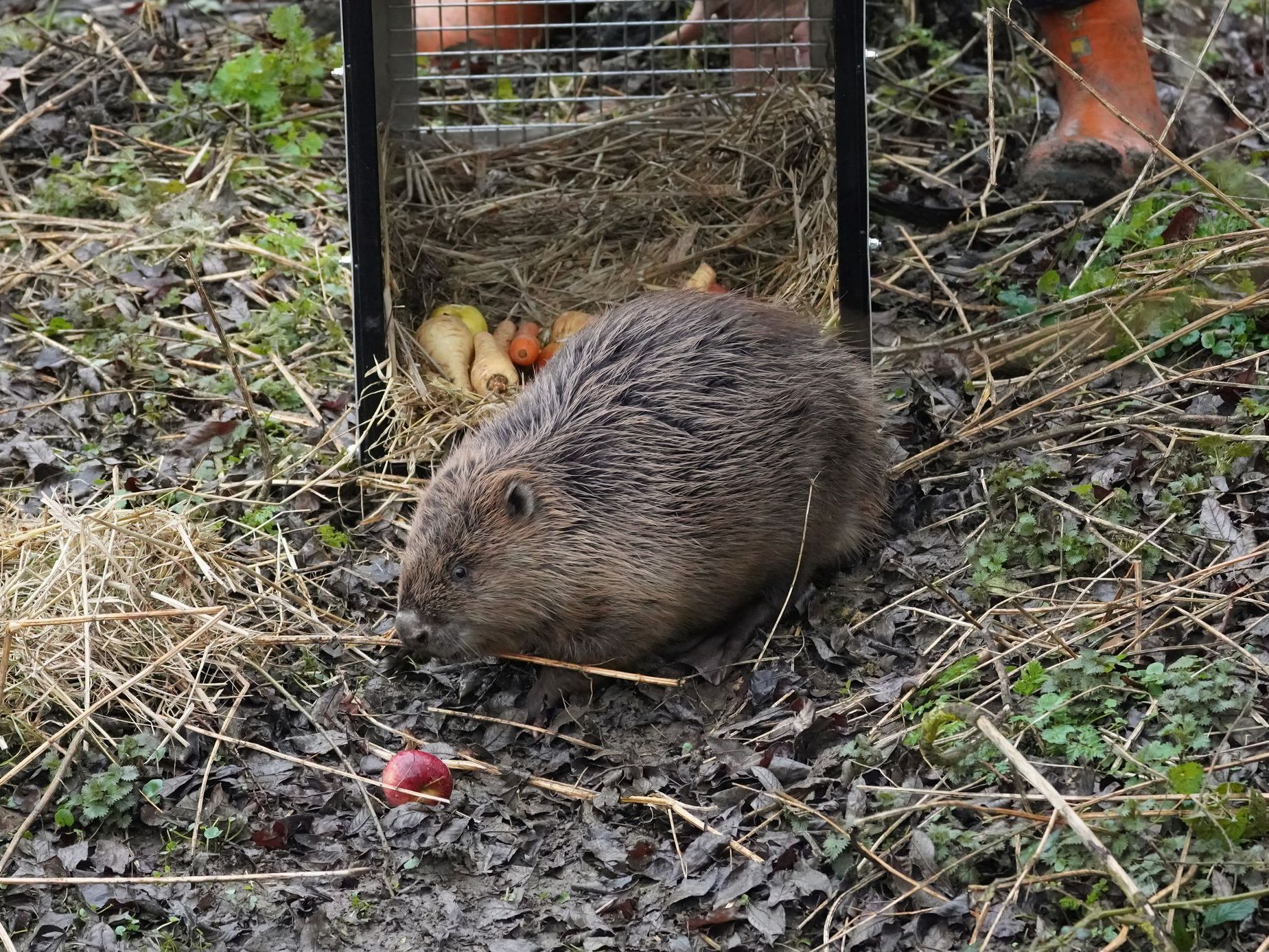
Spains Hall Estate, a privately owned estate covering 2,000 acres of north Essex in England, first reintroduced Eurasian beavers (which had previously been extinct in England since the early 16th century) in 2019, with the help of the Environment Agency, as a way of reducing flood risk to the village of Finchingfield, increasing drought resilience, clean water and creating year-round habitat for wildlife.
Since then, the beavers have had three sets of kits and have used their natural engineering skills to transform a woodland into a thriving wetland. The dams, which the beavers have created from locally felled trees, sticks, stones and mud, have played a crucial role in reducing flood risk in the area by slowing down the river flow and diverting it through new channels and wetlands.
As a result of the success of the project, the estate has expanded the project by building two new enclosures along the Finchingfield Brook which measure 1.9km long and cover 40 hectares (100 acres) - 10 times the size of the original enclosure.
This unprecedented £350,000 scale-up is jointly supported by a unique public and private partnership which includes Anglian Water, the Environment Agency, the Anglian Eastern Regional Flood and Coastal Committee (RFCC), Essex County Council and Essex and Suffolk Water.
This ground-breaking project is the first of its kind in East Anglia and is part of a wider scheme to repurpose the land of the estate towards a more environmentally sustainable future that can deliver cleaner more plentiful water, help wildlife recover and boost climate resilience in the area .
Over time, the beavers will help make the Finchingfield area better equipped to cope with the challenges climate change will bring, and all the while providing inspiration and experience that others can use elsewhere. This innovative partnership will support local communities by not only reducing their risk of flooding, but also by establishing a link to the natural world and creating a landscape not seen in East Anglia for over 400 years.
Archie Ruggles-Brise, Estate Manager at Spains Hall Estate said,
“Thanks to the incredible support of our partners, we are thrilled to be expanding our natural flood management programme and welcoming more beavers onto the estate. This is one of the many ways we are pushing boundaries of what can be done on private land, and we hope to be an inspiration and example to others who can do replicate our work to help make farming more sustainable and environmentally friendly.”
Matt Butcher, Environment Agency said “The Environment Agency have been a proud partner of this project for the last five years, so it has been really exciting to see how the beavers have engineered their environment by building dams, slowing the flow and holding up water to reduce the risk of flooding downstream. The complex habitat they have created along the way is amazing and improving all the time, which makes this a real win-win for people and wildlife. We are excited to see the benefits this latest expansion brings.”
Dr Robin Price, Director of Quality and the Environment for Anglian Water said:
“As unpredictable weather conditions become a more frequent occurrence, finding nature-based solutions to problems such as flooding and drought, has never been more important. Restoring natural habitat in such a purposeful way is at the heart of
Anglian Water’s Get River Positive commitment and we are proud to be supporting the next stage of Archie’s vision for Spains Hall Estate.”
Cllr Peter Schwier, Climate Czar at Essex County Council said “It’s been inspiring to see the natural engineering skills of the Essex beavers gradually transform habitats into wetlands, increasing biodiversity, which helps to reduce flooding in a low cost, natural environmentally friendly way. This supports the Council’s ambitious climate actions and our Everyone’s Essex Strategy by helping to reduce flooding and protecting our communities.”
Tom Harris, Catchment Advisor at
Essex & Suffolk Water, said:
“It’s been incredible to see how the beavers at Spains Hall Estate not only create, but also maintain their wetlands on the estate, ensuring the benefits they provide to biodiversity and the local community is ongoing. This is the definition of a living, working landscape and over the life of the existing enclosure it’s clear we have seen some really tangible benefits to this approach. Today marks the start of something even bigger and we’re excited and privileged to be able to continue working with the fantastic team at Spains Hall Estate and our partners, to see the full potential of this project as part of a much wider suite of ambitious interventions the estate is planning to deliver for the environment.”
Richard Powell, Chair of the
Regional Flood and Coastal Committee said
“I am delighted as Chair of the Anglian Eastern RFCC to support phase two of the Spains Hall Estate beaver project. The beavers are a great example of Natural Flood Management and have done a huge amount to help protect Finchingfield from flooding. Natural processes in a water course are economically and environmentally beneficial, and the team at Spains Hall Estate, with the help of all the partners, have done a great job in making this work for the community. I wish them every success for the second phase of the project and look forward to working with them going forward.”
Latest news
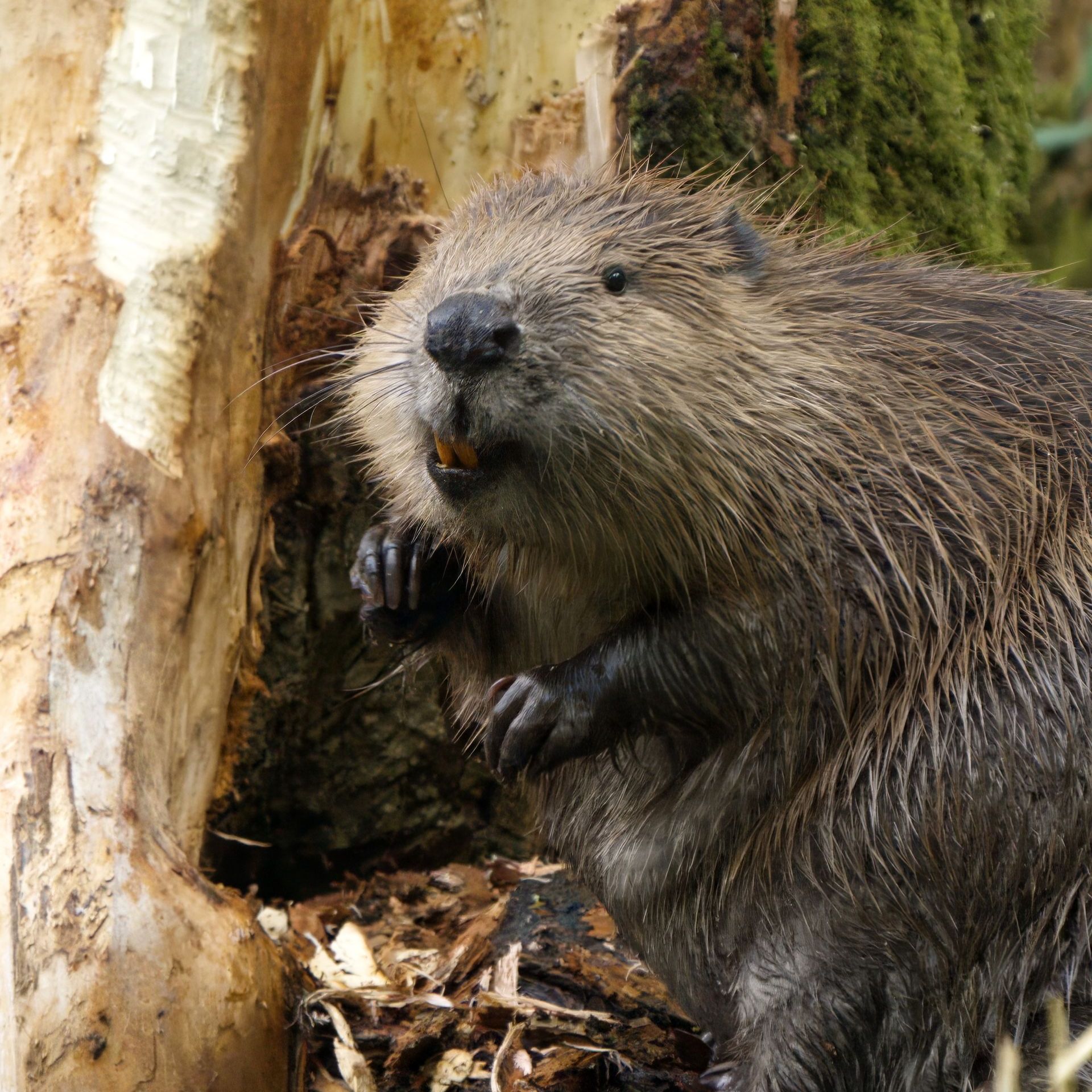
Partners: Sir T.E. Ruggles-Brise Bt., Lady R.E. Ruggles-Brise DL., A.E. Ruggles-Brise, A.C Ruggles-Brise. 'Spains Hall Estate' and logo are Registered Trademarks of the Spains Hall Partnership


